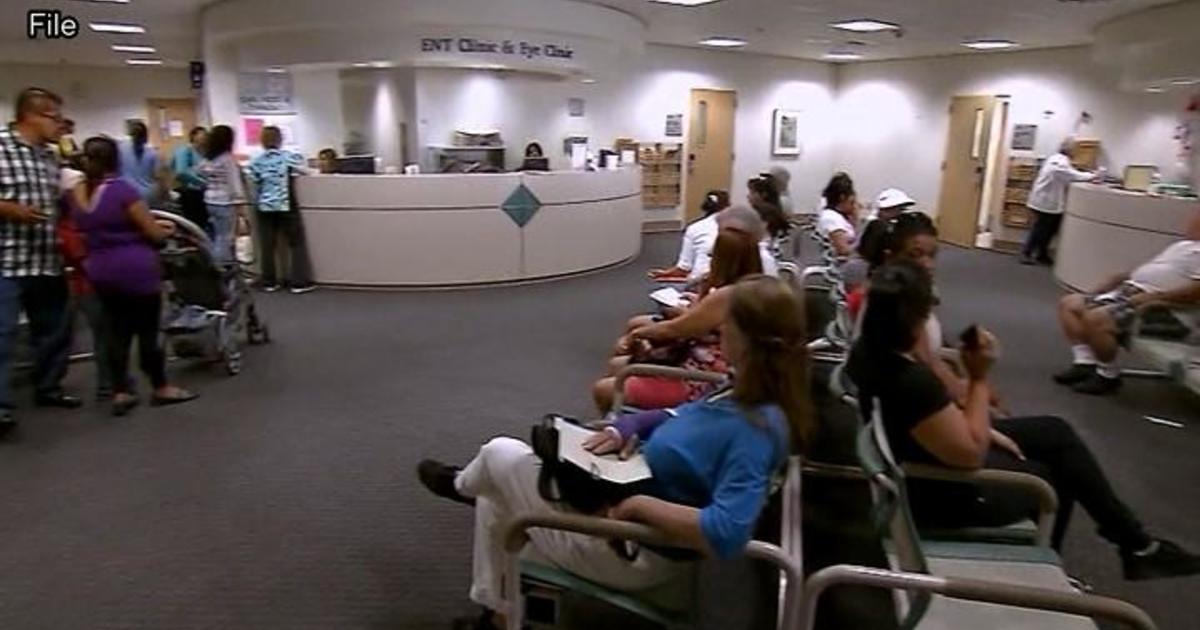Turns Out, Seven Is Enough For Michael Phelps
OMAHA, Neb. (AP) -- Michael Phelps did a wise thing Monday: He gave up the chance to compete for another eight Olympic gold medals.
The move will allow him to rest properly at the London Games and have time to recover between races, which is much more important now that he's 27 years old, his body battered by a dozen years of high-level swimming. He's out of an event that might be more loaded than any other, one he certainly could've won -- never bet against Phelps -- but appeared more competitive than his other races.
But perhaps the most compelling reason to drop the 200-meter freestyle from his program was not having to race against himself at his final Olympics.
Eight is retiring.
"We're not trying to recreate what happened in Beijing," Phelps told The Associated Press during a hotel interview before he got out of Omaha. "Swimming that many times, it's just brutal and there's no need to put myself through that."
Over the eight days of swimming in London, Phelps will have four mornings off and only a couple of dreaded doubles: two races in one session. The most difficult will be the night of July 31, when he's got the finals of the 200 butterfly and 800 freestyle relay. The other comes on Aug. 2 and will be a bit easier: the semifinals of the 100 fly, which he won't have to swim at top speed in order to advance, and the final of the 200 individual medley.
He could still finish his career with a mind-boggling 21 Olympic gold medals.
That should be more than enough for the rest of us, but we were so eager to see if he could do the impossible one more time before he fades into retirement.
Even though his coach, Bob Bowman, had already cautioned that the chances of Phelps repeating his Great Haul of China were remote, we all got giddy with anticipation when he qualified in five individual events at the U.S. trials -- the same five races he competed in at least two Olympics. Combined with the three relays, it looked as though Phelps would do the exact same program that worked to perfection in 2008.
But Bowman never had any intention of entering Phelps in all eight.
Early in the week, the coach planted the idea of dropping the 200 free.
Once Phelps won his last event, the 100 butterfly Sunday night, Bowman brought it up again.
Phelps never flinched.
Seven is enough. More than enough.
"He was absolutely fine with it," Bowman said. "He and I had discussed it early in the week. I said, `Just put this on your
menu. We're not going to talk about it again, but think about it.' And then, last night, he was more perturbed that I made him sit down with his management team and myself to go over it. He sat down and said, "OK, we're scratching the 200 free. Anything else?' I think he was hungry or something."
That, in essence, epitomizes the totally unique relationship between this athlete and this coach.
With 14 gold medals already in hand, more than any Olympic athlete, it would be totally natural for Phelps to exert more
control over his career. Heck, it's rare for someone in an individual sport to stay with the same coach for their entire career. But the swimmer does much than just keep Bowman on the payroll, putting total faith in the coach to make the right call about everything that happens at the pool.
When someone raised the question Sunday night, asking Phelps point-blank if he would drop any events, there was total deferral to Bowman.
"I don't have anything to do with that. That's his call. He takes care of all that," Phelps said, pointing at his coach. "I
leave everything up to him training-wise and preparing me. He's done an amazing job for my career, and I trust him fully."
Bowman was most concerned about the second day of the swimming program, when Phelps would've had to swim the preliminaries of the 200 free in the morning, then return in the evening for two more events: the semifinals of the 200 free and the final of the 400 free relay -- a race the Americans desperately want to win, especially since Australia is a heavy favorite.
"We respect the challenge that we're up against," Bowman said, breaking into a sly grin, "and perhaps we will be more ready than people think."
With the 200 free out of the picture, Phelps' schedule looks more manageable -- especially since he admittedly hasn't trained nearly as hard over the past four years as he did leading up to his first three Olympics.
Bowman tried to make up for the lack of training by taking Phelps to the high altitude of Colorado for six weeks leading up the trials. While the results were fine -- Phelps won four of his races in Omaha, including two epic duels with Ryan Lochte -- but his times weren't all that impressive, and he appeared to wear down by the end of the meet.
His final race, the 100 fly, was perhaps his least impressive.
He got off to a terrible start, was sixth at the turn and needed a late charge to pull out the win, gliding to the wall rather than taking an extra stroke.
"He's swimming low in the water, like a tired swimmer," observed Gary Hall Jr., a three-time Olympian.
Bowman shrugged off the notion that he bailed on the 200 free because the field is stacked. Phelps not only would've had to beat fellow American Ryan Lochte, the defending world champion, but international studs such as France's Yannick Agnel, who has the three fastest times in the world this year, as well as Germany's Paul Biedermann, China's Sun Yang, South Korea's Park Tae-hwan and Japan's Takeshi Matsuda.
Phelps has never run from a challenge, and it wouldn't be fair to say that's what he's doing now.
But Bowman is a realist, and he's making the right call to give Phelps his best chance of winning seven gold medals.
Seven is enough.
(Copyright 2012 by The Associated Press. All Rights Reserved.)



